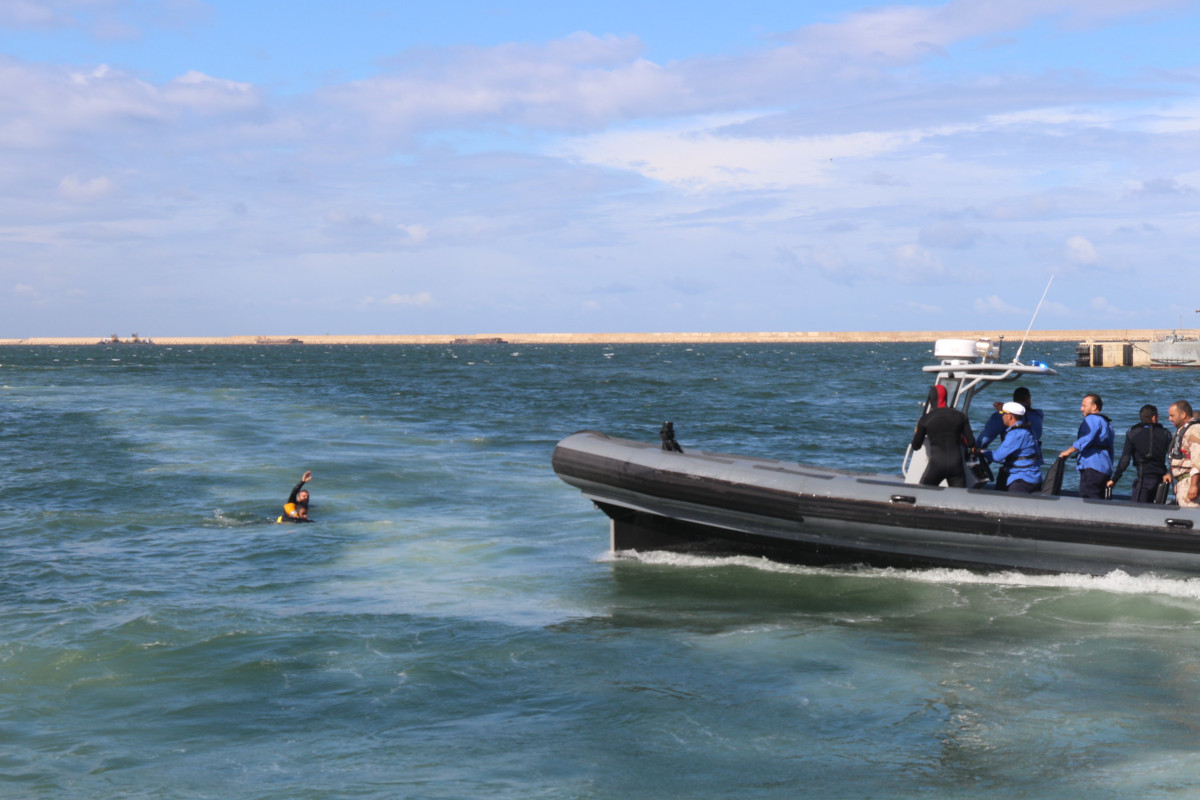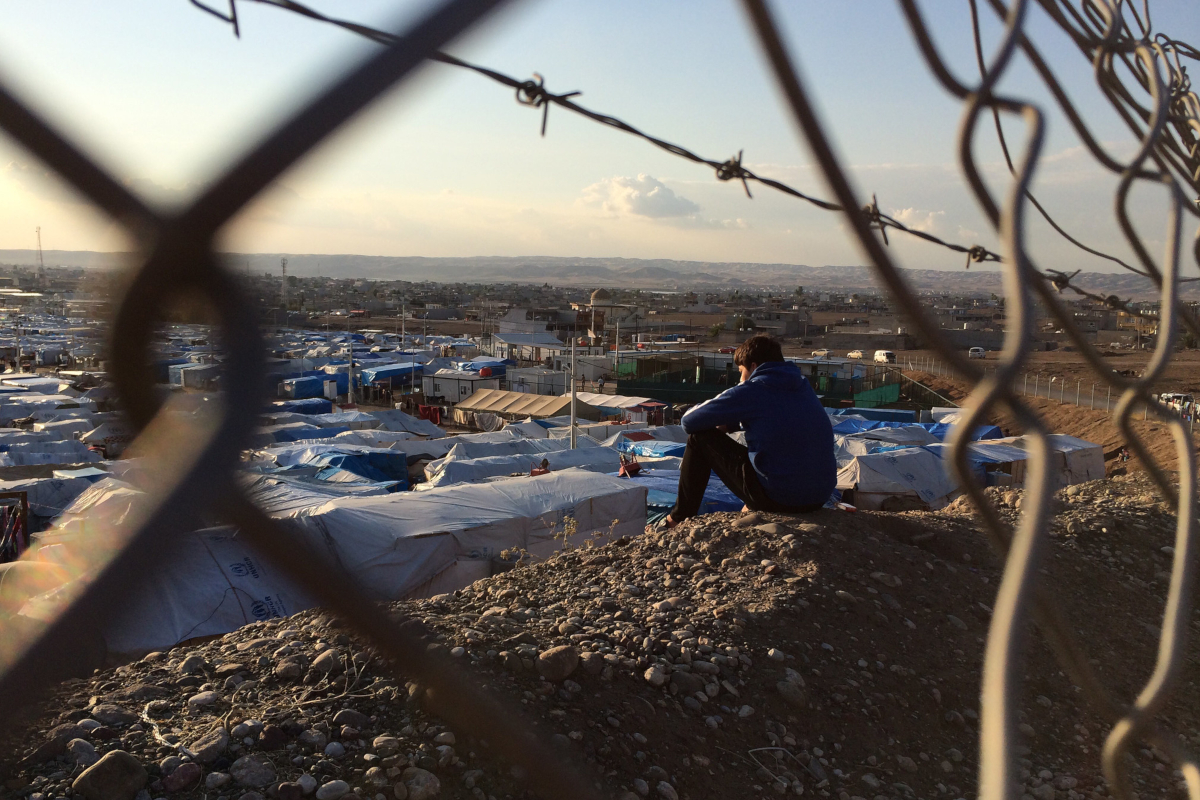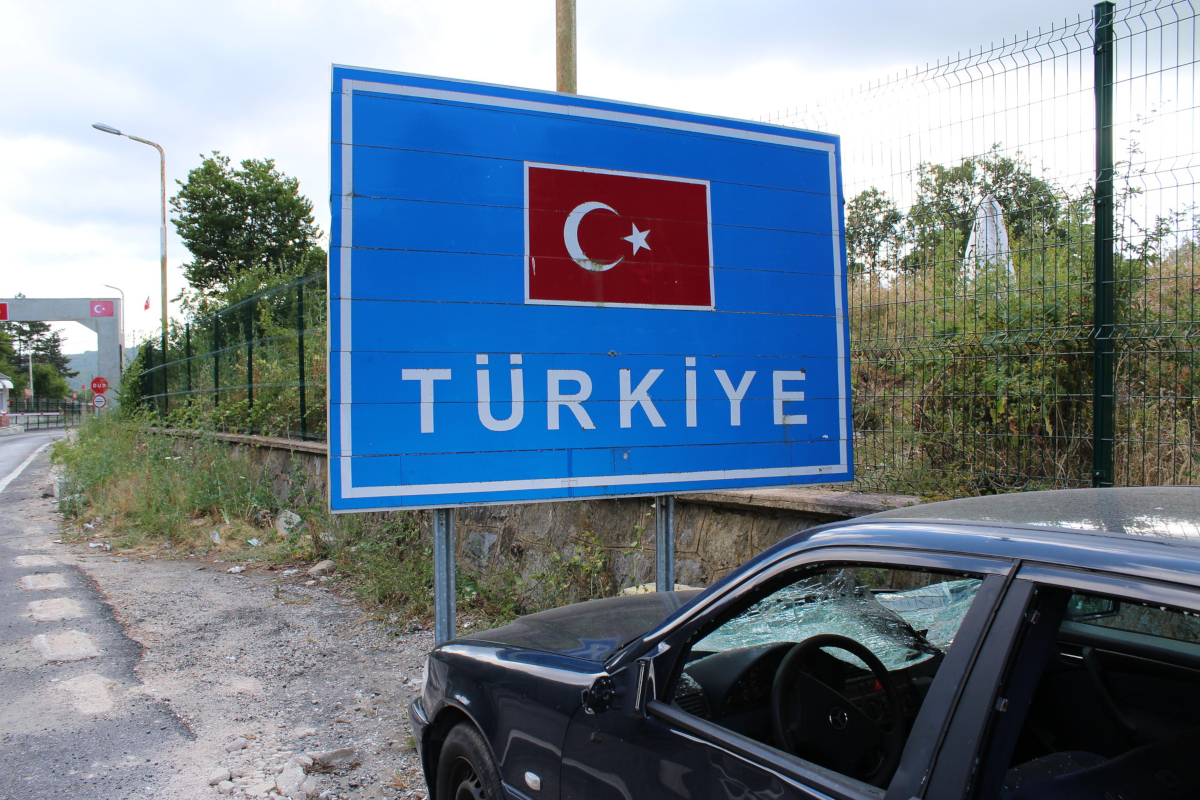EU to step up support for human rights abuses in North Africa
Topic
Country/Region
27 October 2023
In a letter to the European Council trumpeting the EU’s efforts to control migration, European Commission president Ursula von der Leyen highlighted the provision of vessels and support to coast guards in Libya and Tunisia, where refugee and migrant rights are routinely violated.
Support our work: become a Friend of Statewatch from as little as £1/€1 per month.

An EU mission trains coast guards in Libya. Image: European External Action Service, CC BY-NC-ND 2.0
The letter (pdf) states:
“…we need to build up the capacity of our partners to conduct effective border surveillance and search and rescue operations. We are providing support to many key partners with equipment and training to help prevent unauthorised border crossings. All five vessels promised to Libya have been delivered and we see the impact of increased patrols. Under the Memorandum of Understanding with Tunisia, we have delivered spare parts for Tunisian coast guards that are keeping 6 boats operational, and others will be repaired by the end of the year. More is expected to be delivered to countries in North Africa in the coming months.”
What it does not mention is that vessels delivered to the so-called Libyan coast guard are used to conduct “pullbacks” of refugees to brutal detention conditions and human rights violations.
Meanwhile in Tunisia, the coast guard has been conducting pullbacks of people who have subsequently been dumped in remote regions near the Tunisian-Algerian border.
According to testimony provided to Human Rights Watch (HRW)¸ a group of people who were intercepted at sea and brought back to shore were then detained by the National Guard, who:
“…loaded the group onto buses and drove them for 6 hours to somewhere near the city of Le Kef, about 40 kilometers from the Algerian border. There, officers divided them into groups of about 10, loaded them onto pickup trucks, and drove toward a mountainous area. The four interviewees, who were on the same truck, said that another truck with armed agents escorted their truck.
The officers dropped their group in the mountains near the Tunisia-Algeria border, they said. The Guinean boy [interviewed by HRW) said that one officer had threatened, “If you return again [to Tunisia], we will kill you.” One of the Senegalese children [interviewed by HRW] said an officer had pointed his gun at the group.”
Von der Leyen does not mention the fact that the Tunisian authorities refused an initial disbursement of €67 million offered by the Commission as part of its more than €1 billion package for Tunisia, which the country’s president has called “small” and said it “lacks respect.” The EU’s ambassador to Tunisia has said that the refusal “speaks to Tunisia’s impatience and desire to speed up implementation” of the deal.
The letter also emphasises the need to “establish a strategic and mutually beneficial partnership with Egypt,” as well as providing more support to Türkiye, Jordan and Lebanon. The letter hints at the reason why – Israel’s bombing of the Gaza strip and a potential exodus of refugees – but does not mention the issue directly, merely saying that “the pressures on partners in our immediate vicinity risk being exacerbated”.
It appears that the consequences rather than the causes of any movements of Palestinian refugees are the main concern. Conclusions on the Middle East agreed by the European Council last night demand “rapid, safe and unhindered humanitarian access and aid to reach those in need” in Gaza, but do not call for a ceasefire. The European Council instead “strongly emphasises Israel’s right to defend itself in line with international law and international humanitarian law.”
More surveillance, new law
Other plans mentioned in the letter include “increased aerial surveillance” for “combatting human smuggling and trafficking” by Operation IRINI, the EU’s military mission in the Mediterranean, and increased support for strengthening controls at points of departure in North African states as well as “points of entry by migrants at land borders.”
The Commission also wants increased action against migrant smuggling, with a proposal to revise the 2002 Facilitation Directive “to ensure that criminal offences are harmonised, assets are frozen, and coordination strengthened,” so that “those who engage in illegal acts exploiting migrants pay a heavy price.”
It appears the proposal will come at the same time as a migrant smuggling conference organised by the Commission on 28 November “to create a Global Alliance with a Call to Action, launching a process of regular international exchange on this constantly evolving crime.”
Deportation cooperation
Plans are in the works for more coordinated action on deportations, with the Commission proposing to:
“…work in teams with Member States on targeted return actions, with a lead Member State or Agency for each action. We will develop a roadmap that could focus on (1) ensuring that return decisions are issued at the same time as a negative asylum decisions (2) systematically ensuring the mutual recognition of return decisions and follow-up enforcement action; (3) carrying out joint identification actions including through a liaison officers' network in countries of origin; (4) supporting policy dialogue on readmission with third countries and facilitating the issuance of travel documents, as well as acceptance of the EU laissez passer; and (5) organising assisted voluntary return and joint return operations with the support of Frontex.”
Cooperation on legal migration, meanwhile, will be done by member states “on a voluntary basis,” with the letter noting that any offers made should be conditional on increased cooperation with EU deportation efforts: “local investment and opportunities for legal migration must go hand in hand with strengthened cooperation on readmission.”
More funds
For all this to happen, the letter calls on the European Council to make sure that “migration priorities - both on the internal and external dimension - are reflected in the mid-term review of the Multiannual Financial Framework,” the EU’s 2021-27 budget.
Mid-term revision of the budget was discussed at the European Council meeting yesterday, though the conclusions on that point merely state that there was an “in-depth exchange of views,” with the European Council calling on the Council of the EU “to take work forward, with a view to reaching an overall agreement by the end of the year.”
Documentation
Our work is only possible with your support.
Become a Friend of Statewatch from as little as £1/€1 per month.
Further reading

EU seeking informal agreement to boost deportations to Iraq
The EU is pushing for a “non-binding instrument” with Iraq in order “to increase Iraq’s cooperation on readmission” – that is, acceptance of deportations.

Spanish Presidency’s call for “a preventive model” for migration: more of the same
A discussion paper circulated on 26 September by the Spanish Presidency proposes a switch in the external dimension of migration from “a reactive to a preventive model”. In reality it appears that this is little more than doubling down on existing plans. The paper was circulated to inform discussion at the Justice and Home Affairs Council meeting last week.

Von der Leyen letter: "key border between Bulgaria and Türkiye" is first target for €600 million fund
The European Commission is about to make €600 million available to "substantially support Member States with border control and technological equipment," and "a first objective" for that money "would be the key border between Bulgaria and Turkiye," says a letter to the European Council from Commission President Ursula von der Leyen.
Spotted an error? If you've spotted a problem with this page, just click once to let us know.
